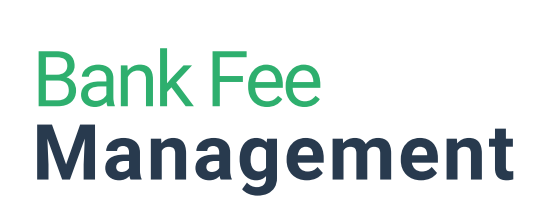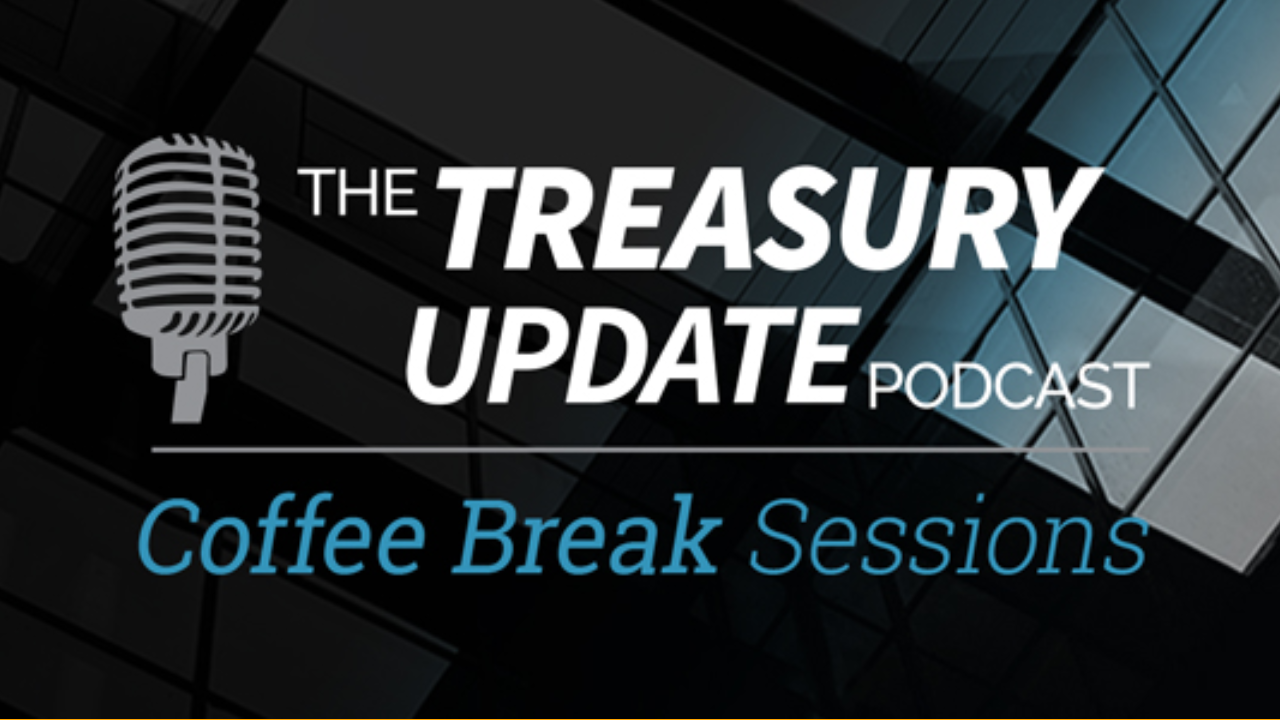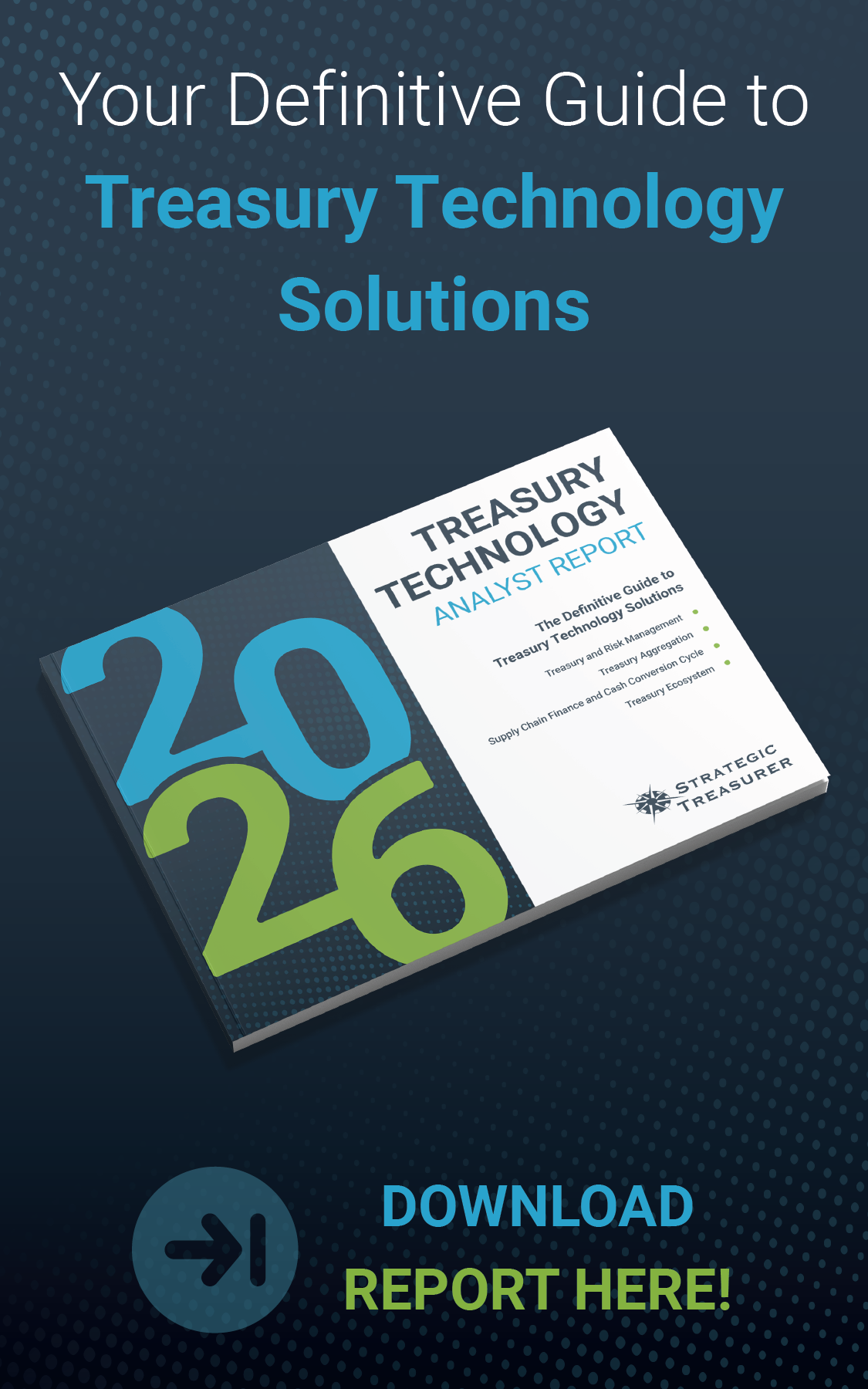
Session 26
Coffee Break Session:
What Is Global Financial Risk?
What is global financial risk? Coffee Break Session Host Alexa Cook catches up with Stephanie Villatoro, Senior Consultant at Strategic Treasurer, to discuss global financial risk. They discuss what global financial risk can look like, giving insight into what treasurers can expect to see.
Host:
Alexa Cook, Strategic Treasurer


Speaker:
Stephanie Villatoro, Strategic Treasurer


Episode Transcription - CBS Episode 26: What is Global Financial Risk?
ALEXA COOK:
Hey guys, welcome to the Treasury Update Podcast, Coffee Break Session, the show where we cover foundational treasury topics and questions in about the same amount of time it takes you to drink your coffee.
ALEXA COOK:
This is your host Alexa. I’m joined today again with Stephanie Villatoro, senior consultant with us here at Strategic Treasurer. Welcome back, Stephanie.
STEPHANIE VILLATORO:
Thanks Alexa.
ALEXA COOK:
So today we’re going to continue on with our new mini series for our Coffee Break Sessions, which was on global treasury topics. And today we’re going to cover global financial risk. I really think this is a great topic to cover, especially following our last podcast that we did with Stephanie, which was on global expansion. So this is really taking that global expansion piece and then looking more specifically at some of the financial risks that could be associated with that. So, Stephanie, if you could. please start us off by just giving us a quick overview of what global financial risk is.
STEPHANIE VILLATORO:
Certainly. Global financial risk has to do with the different areas that can impact your business from a financial standpoint, whether that is foreign currency risk, commodity, if you’re a business that is dealing with commodities, it could be your country risk from a global standpoint, the countries that you’re doing business with, or the people you do business with and where they’re located as well as your counterparty risk. So those are different areas that you have to look at and counterparty risk is with anyone domestic or global, but we’ll talk a little bit more about counterparty risk later how a domestic company could be actually impacted by a global partner.
ALEXA COOK:
So I think you started off by saying that there was those different areas that can impact the business, and specifically you mentioned FX. So why don’t we dive into the FX piece of that a little bit further?
STEPHANIE VILLATORO:
So this is the most common thing people look at when you’re thinking of global risk. It’s the first thing that pops up, foreign currency. You have two different areas you look at with foreign currency. That is your transaction risk and your translation risk. So transaction is physically the movement of money from one currency to another. So you’re moving money around the world and it’s that exchange rate at the point of time of the transaction. That is a risk at that point in time. And then the other one is translation. That’s the end of month, end of quarter, end of year when you’re translating all your currencies to your home currency and there’s a risk associated with that as well for FX gain and loss from the consolidation standpoint.
ALEXA COOK:
Right. And I think you can, I guess, assume some gain or losses, especially from the FX rates that are set at the beginning of the month and then the FX rates that are actually assumed by the end of the month too. There’s some risk there, like you said, with the consolidation.
STEPHANIE VILLATORO:
Yes. The rates for which you forecast from the standpoint of a company. So you set those forecasts at the beginning of the year or for your following year. You set those FX forecast on your books of what that’s going to be and then what actually occurs is the difference in that translation of what you had set as your transaction rates for the year.
ALEXA COOK:
So then I think you said that the next area that could really impact the business from the global financial risk perspective was commodities. What did you mean by that, or what are those?
STEPHANIE VILLATORO:
Commodity risk is similar to FX, but you’re dealing with actual prices of commodities. This impacts companies that use a lot of one commodity, or maybe they trade commodities. If a company uses a lot of a commodity, so they’re the purchaser, this could be an airline buying airline fuel. It could be a manufacturer of candy that has to buy tons of sugar. It could be a coffee company like Starbucks out there that has to buy tons of coffee beans as well. That’s a risk on the standpoint of the price fluctuations of the commodity that you’re purchasing.
ALEXA COOK:
That makes sense. Especially if you’re purchasing that same thing over and over and over again, like you said, with the airlines or the coffee. That could really change some of your bottom line numbers there. So that’s interesting. So that kind of makes me think of, I guess the next question I’ll ask, which is how does this impact a country on a global perspective? I know you said the purchasing of things like sugar and coffee and just when I think of those two items, I think of a global landscape and I know the global landscape, I think the way you’re going to answer the question is not specific to commodities, but I’ll just leave it a little more open-ended on the country and global, I guess, pieces of that risk.
STEPHANIE VILLATORO:
We can relate this to commodities to start with, but anytime you are dealing with trading of a particular commodity in an area of the world, you can get impacted by the political landscape within that country. For instance, war, if you think of the Middle East and anytime there’s war going on, what happens? The gas prices go up. So the prices of oil skyrockets. So during a political landscape, if you’re thinking of that in times of unrest in any country, prices escalate because it’s harder to get the stuff out when there’s war going on. And it depends, they may be raising the prices because they don’t want to do business with a particular country. So they use the prices in a reaction to that. So that’s where political landscape could come into like a commodity type, but it also impacts FX.
STEPHANIE VILLATORO:
You have a political landscape as well that can impact FX fluctuations. If we think of Greece and the decline of their central bank where their currency just bottomed out, there are different things in the political landscape that can impact foreign exchange as well. And the most recent thing that we see is pandemics. How does pandemics impact businesses? We’ve seen it in real time recently of how businesses have gone out of business, how some have actually skyrocketed and survived because of the need for their products during a pandemic, think of masks. Those companies that produce masks or the companies that have switched gears into masks have just reacted to this pandemic that has impacted them quite a bit. Another one might be Brexit. That’s another different thing from a global standpoint that could impact a company as well.
ALEXA COOK:
That makes sense. And I’m actually going to pivot off of how you said pandemics and how that’s impacting different businesses on a global scale and how different suppliers might be either going out of business or pivoting what they’re making to supply different goods. So that kind of leads into the next question, which is the counterparty risk of things. So how is counterparty risk tying into the global financial risk piece of things?
STEPHANIE VILLATORO:
So you always have risk with whom you do business, whether it’s a counterparty that is a vendor supplier or a bank, or it could even be your customer. So let’s talk about that a little bit. With your banks you have a risk with them going out of business or different things that they have to comply with. There’s also looking at your share of wallet amongst your banks, looking at the risk assessment of who do you have the most risk with. An example today that I could think of more domestically would be lockbox suppliers. Banks are getting out of the business of supplying lockbox as a service. So if you have a huge or a large vendor or bank that provides you with that service and they decide to go out of business, you have a risk there to move to a new vendor within a certain timeframe before they close down their lockbox services.
STEPHANIE VILLATORO:
There are several banks that have done that in the last five years. The other area is your vendors and suppliers, and maybe not a bank, but where is your vendors and suppliers? Where are they? Where are they located in the world? What is the risk associated with that global supplier or vendor? This also applies to domestic companies that are purely domestic from maybe a customer standpoint, but their vendor and supplier may be around the world. And then customers. Are your customers international as well? There’s customers risk there. There’s also customer risk from the percentage of business they have with you as a company. So if you have customer risk and they hold a large portion of your revenue, what happens to the company if you lose that one customer, or maybe it’s a group of customers. But there is customer risk associated with that as well.
STEPHANIE VILLATORO:
And looking at how you manage that is similar to what you would do with a bank, like a share of wallet assessment. Where do you hold all of your cash management, your foreign exchange, your credit risk with banks, looking at that in a global picture and updating that on a regular basis is one way to look at it. And you can do the same with your suppliers and your customers.
ALEXA COOK:
So I think that covers all the areas that you pointed out at the beginning when you gave us a quick overview. And just to kind of recap, global financial risk is really looking at all the different areas that can be impacted by different financial factors in a business. So that was FX, commodities, country, or global, and even political landscapes, pandemics, and then counterparty risks, and really just kind of diving into with whom you do business, especially if you’re a domestic company. I feel just in thinking about that, if you’re a domestic company, you probably think, “Oh, global. I don’t have any risks there.” But there’s a little bit to think about there. Was there anything else that you wanted to add?
STEPHANIE VILLATORO:
Maybe just clarify a little bit about Brexit. I know I mentioned it, but I didn’t get into the detail. That’s where the UK is pulling out of the European Union. So they’ll no longer accept euros. That change is an example of your country risk and foreign exchange, how that would impact your foreign exchange risk.
ALEXA COOK:
Well, thank you, Stephanie. I appreciate you joining us on the podcast today. To all of our listeners, make sure you tune in every first and third Thursday of the month for a new episode. And of course, we’re always open to hearing any feedback, comments, or questions if you want to send us an email at podcast@strategictreasurer.com.
OUTRO:
This podcast is provided for informational purposes only, and statements made by Strategic Treasurer LLC on this podcast are not intended as legal, business, consulting, or tax advice. For more information, visit and bookmark strategictreasurer.com.
Strategic Treasurer’s Bank Fee Management Program
Strategic Treasurer’s Bank Fee Management program is a comprehensive package that provides a level of service beyond what a software program or basic outsourcing can offer.
Coffee Break Sessions – A Treasury Update Podcast Series
A part of the Treasury Update Podcast, Coffee Break Sessions are 6-12 minute bite-size episodes covering foundational topics and core treasury issues in about the same amount of time it takes you to drink your coffee. The show episodes are released every first and third Thursday of the month with Special Host and Treasury Consultant Alexa Cook of Strategic Treasurer.




